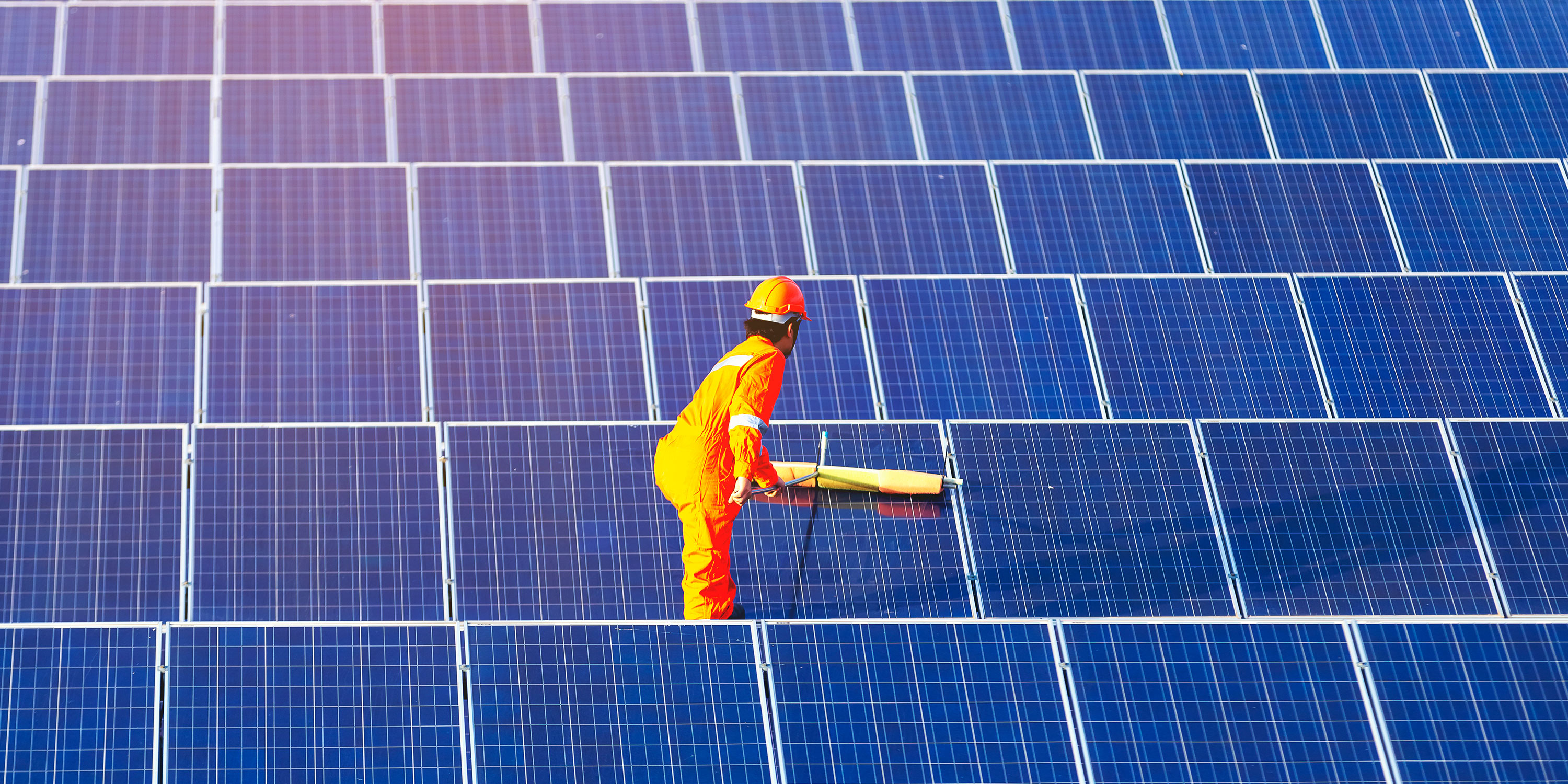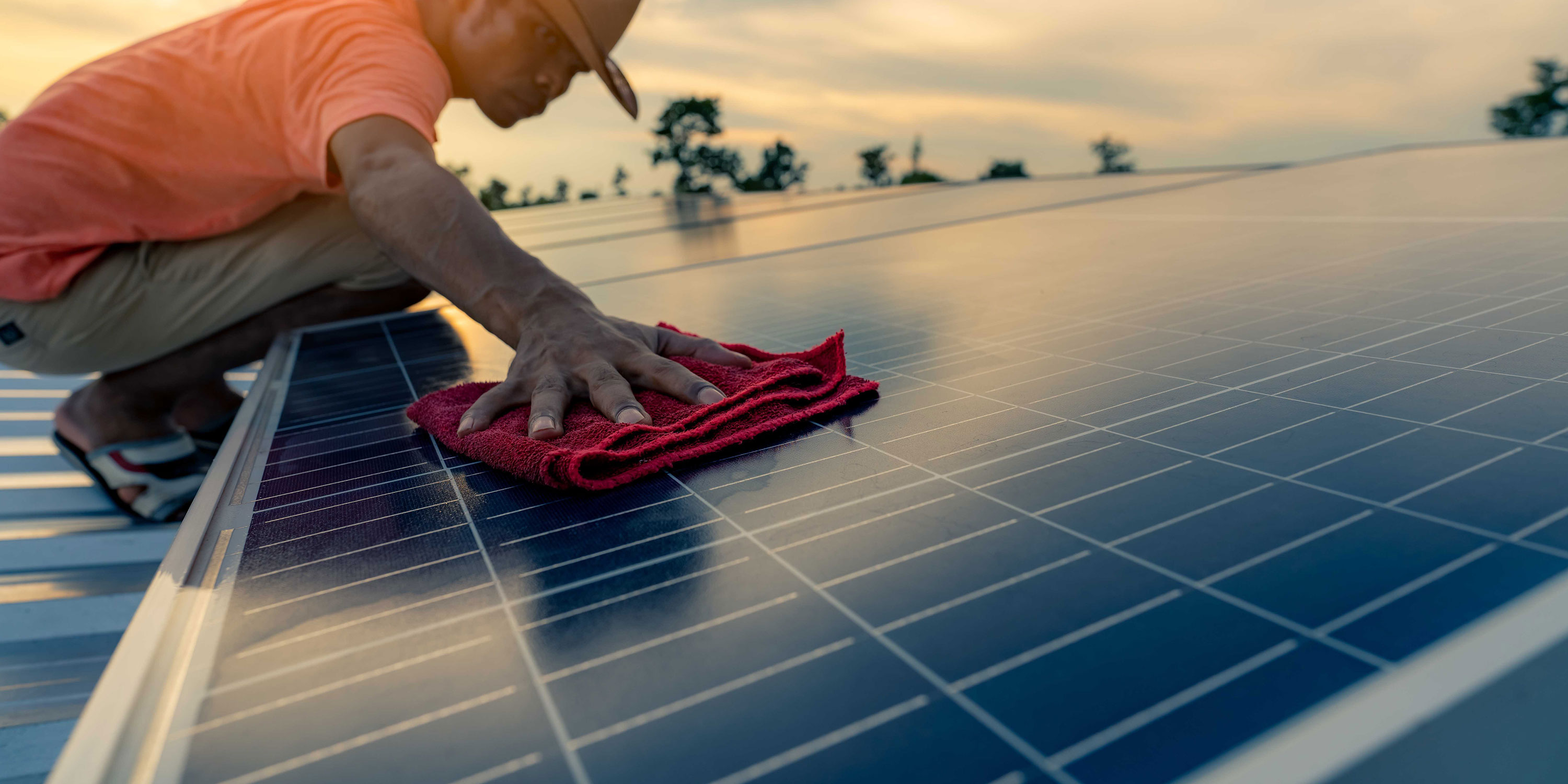Solar panels have no moving parts, so they require very little maintenance to keep them in operation. However, because they’re exposed to the elements, dust and debris will settle on the face of your panels, limiting their output slightly.
Over time, dirty solar panels can lead to a 5%+ production loss from your panels. To maximize the performance of your solar power system, you may need to clean your solar panels about once a year.

How to clean solar panels
The surface of a solar panel is made of glass, so it’s best to use a small amount of mild soap such as dish soap to get them clean. Here’s the best way to clean solar panels:
Gather up your solar cleaning equipment and solution. A window washing kit works well for this.
Rinse solar panels down with clean water. Avoid high water pressure, which could scratch the glass face of your panels.
Spray your cleaning solution onto your solar panels.
Use a soft brush or sponge to gently wipe the panels clean.
Rinse the cleaning solution with water.

How often do solar panels need to be cleaned?
"Solar panels don’t require a ton of maintenance, but it’s a good idea to clean them about once per year," says Ceegsun's CEO, David Wang.
In most cases, rain is enough to wash most dust, leaves, and other light debris off your panels. In moderate climates, the rain will do most of the work for you. In this scenario, we recommend cleaning your solar panels once a year to wipe down dirt and grime that hasn’t been washed away by the rain.
Properties exposed to heavy snowfall, pollen, dust storms, and/or falling leaves may require a more frequent seasonal cleaning routine to reduce buildup on the panels.
In truth, solar panels really only need to be cleaned if they’re hindering the output of your system. Your solar monitoring portal will report on your system’s daily output. If your system has fallen 3-5% behind its peak output (even on clear sunny days), that may be a sign your panels are due for a cleaning.
Tips on proper solar panel cleaning
The majority of home solar systems are tilted with the slope of the roof, which makes it easier for rain to clean solar panels naturally. On flat roofs, more dust may settle, leading to more frequent cleaning.
Deionized water is best for cleaning solar panels. Try not to use hard water, which is water with high mineral content. The minerals in hard water can leave behind a residue on the glass when the water dries.
Take care not to scratch the glass when cleaning your panels ‒ there is the risk you can damage the anti-reflective coating. Avoid using harsh cleaners, a hard-bristled brush, or a high-pressure hose that could damage the surface of the glass.

Solar panel cleaning services
If you don’t want to climb on your roof, there may be professional solar panel cleaners in your area willing to do the work for you. Hiring someone to clean your solar panels may run you $150-$300 depending on the size of your system.
These services are convenient, but since the output gains from cleaning panels are minimal (just a couple of percentage points), we only recommend doing this sparingly. While we’ve seen some cleaners try to book 4 to 5 cleaning visits a year to drum up business, this seems excessive for the majority of homeowners. Again, once a year is probably fine unless your monitoring portal shows steep production losses.










